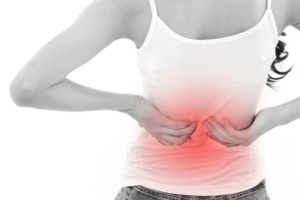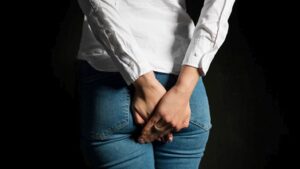How do you know if you have hemorrhoids or something more serious?
Most of the piles’ patients get confused and ask us, How do you know if you have hemorrhoids or something more serious? So, we have decided to address this issue once at all.
How do you know if you have hemorrhoids or something more serious?
What exactly are hemorrhoids?
Hemorrhoids, often known as piles, are a normal part of the human body and are connected with bowel continence or control. Hemorrhoids are often symptomatic inflammatory hemorrhoids that cause bleeding, tissue protrusion, irritation, and itching. These symptoms develop when the rectum or anal canal blood vessels enlarge.

Increased pressure from bowel movements or actions that generate tension in the perineum (the area between the anus and the genitals), such as childbirth and heavy lifting, are often responsible for this swelling. Internal hemorrhoids and external hemorrhoids are the two forms. Internal hemorrhoids are discovered in the inner lining of the anus and lower rectum. The skin around the anus covers external hemorrhoids.
Hemorrhoids’ causes and risk factors
Symptomatic hemorrhoids are caused by a variety of ailments and reasons, according to doctors, including:
- When having a bowel movement, you may experience squeezing.
- Long periods spent on the toilet.
- Prolonged constipation or diarrhea
- A fiber-deficient diet
- Obesity
- Pregnancy
- Having reached the age of 50
- Having to carry heavy objects
- The tissues around the anus deteriorate as we age.
Hemorrhoids symptoms
The symptoms of hemorrhoids may differ depending on the kind of hemorrhoids you have. Internal hemorrhoids, for example, are seldom seen or felt because they are so deep inside the rectum.
There might be blood in your feces, tissue, or toilet bowl. You might have a hemorrhoid that has prolapsed through the anus (a prolapsed hemorrhoid), which could be unpleasant.

External hemorrhoids are anal itching, swelling or lumps around the anus, rectal bleeding, and pain in the anal area, especially when sitting. Some individuals may experience terrible pain if a clot forms in an external hemorrhoidal canal.
When should you visit your doctor?
“If you have an issue with your bottom, see your primary care physician and have them inspect it.” Rectal examinations were formerly part of a yearly physical, but many doctors no longer do these. You must be willing to take a test and research it.”
